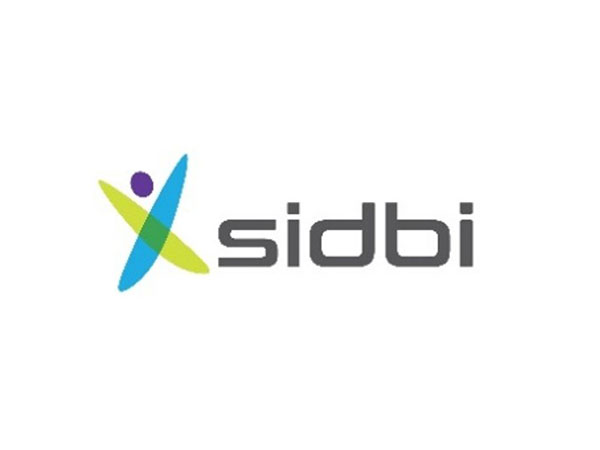
The latest findings from SIDBI’s MSME outlook survey reveal a strengthening business confidence among Indian Micro, Small, and Medium Enterprises (MSMEs). The Composite MSME Business Confidence Index (M-BCI) for the first quarter of FY2026 (April–June 2025) has climbed to 63.75, a notable increase from 60.82 in the previous quarter. This positive shift indicates a generally favourable business environment for small business across India.
Manufacturing and trading sectors have experienced particularly sharp improvements in confidence. The services sector, while already strong, continues to maintain a high confidence level above 60, demonstrating sustained optimism within this segment of the MSME economy.
Looking ahead, the outlook remains promising. The Composite MSME Business Expectations Index (M-BEI) currently stands at 62.19 for the next quarter. Projections show a further rise to 67.88 for the corresponding quarter next year, indicating a robust long-term outlook. Sentiments are especially strong in the trading and services sectors, with the M-BEI for Q1FY2027 recorded at 68.32 and 68.24 respectively.
While a moderate dip in expectation indices is observed for Q2FY2026, this likely reflects near-term global uncertainties impacting the MSME sector. However, the overall trend suggests that long-term optimism remains firmly intact, pointing towards continued growth and resilience within the MSME economy.
Despite the overall positive sentiment reflected in the latest MSME outlook survey, the sector continues to grapple with a number of significant challenges. Access to adequate and timely finance remains a persistent hurdle for many small business in India. While the survey indicates improvements in working capital availability, many MSMEs, particularly those in rural or underserved areas, still struggle to secure loans and credit at competitive interest rates. This financial constraint often limits their ability to invest in technology upgrades, expand operations, and effectively manage their cash flow.
Another key challenge highlighted by the survey is the availability of skilled labour. The rapid pace of technological advancements and evolving industry demands require MSMEs to have access to a workforce equipped with the necessary skills and expertise. However, many MSMEs face difficulties in attracting and retaining skilled employees, leading to skill gaps and hindering their productivity and competitiveness. Addressing this skills gap through targeted training programmes and industry-academia collaborations is crucial for the sustained growth of the MSME economy.
The survey also sheds light on the challenges related to the ease of doing business. Complex regulatory procedures, bureaucratic hurdles, and compliance requirements often create significant obstacles for MSMEs, diverting their time and resources away from core business activities. Streamlining regulatory processes, reducing compliance burdens, and promoting a more business-friendly environment are essential for fostering the growth and development of the MSME sector. Additionally, global economic uncertainties and supply chain disruptions continue to pose challenges for MSMEs, impacting their sales, profitability, and overall business outlook. The April-June 2025 period may bring specific challenges, requiring proactive measures to mitigate potential risks.
In addition to these challenges, MSMEs are also facing increasing competition from larger enterprises and global players. To remain competitive, MSMEs need to embrace innovation, adopt new technologies, and enhance their product and service offerings. SIDBI plays a crucial role in supporting MSMEs in overcoming these challenges by providing access to finance, promoting skill development, and advocating for policy reforms that create a more conducive business environment for the MSME sector in India.
In response to the challenges and opportunities identified in the outlook survey, SIDBI is actively engaged in a multi-pronged approach to support the MSME sector. A key focus area is enhancing access to finance for small business. SIDBI offers a range of financial products and services tailored to the specific needs of MSMEs, including term loans, working capital finance, and equity investments. It is also actively promoting digital lending platforms and fintech solutions to improve the efficiency and reach of its financial assistance programmes. SIDBI has significantly scaled up its partnerships with banks and other financial institutions to enhance credit flow to MSMEs across India, particularly in underserved regions.
Recognising the critical importance of skill development, SIDBI is also investing in initiatives to address the skills gap in the MSME sector. It supports training programmes and vocational courses that equip MSME employees with the skills and knowledge required to thrive in a rapidly evolving business environment. SIDBI also facilitates industry-academia collaborations to ensure that training programmes are aligned with the needs of the MSME sector. These programmes aim to boost the productivity and competitiveness of the MSME economy.
Furthermore, SIDBI actively advocates for policy reforms that promote a more conducive business environment for MSMEs. It works closely with government agencies and other stakeholders to streamline regulatory processes, reduce compliance burdens, and promote ease of doing business. SIDBI also plays a crucial role in creating awareness about government schemes and initiatives designed to support the MSME sector. This includes providing guidance and support to MSMEs in accessing these schemes and complying with relevant regulations. The April-June 2025 period is likely to see further refinements in SIDBI’s approach, informed by the findings of the MSME outlook survey, ensuring its interventions remain relevant and impactful for small business in India. SIDBI’s commitment is to foster a vibrant and resilient MSME economy.